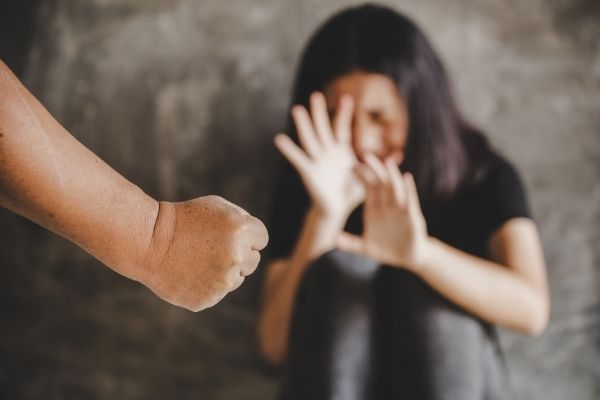Deadline: 28-Jul-23
The Illinois Equal Justice Foundation (IEJF) is seeking applications for the Civil Legal Aid Grants to resolve life-changing legal problems.
The IEJF administers the State of Illinois’ appropriation for Civil Legal Aid, which is housed in the Attorney General’s budget. Attorney General requested and received $5,000,000 for the state appropriation for civil legal aid this year.
With this funding, they support programs that:
- Help people access basic needs
- Protect victims of domestic violence
- Recover funds for seniors victimized by fraud
- Help people resolve family crises
Categories
The Illinois Equal Justice Foundation makes Civil Legal Aid grants in five categories:
- Legal Information for the Public
- In the Legal Information for the Public category, the IEJF will consider support for two types of projects:
- Legal Information Centers: Legal information centers are designed to operate as a “starting point” for people who are considering the use of the legal system to resolve a problem. A legal information center will offer printed, video and/or Internet -based materials on topics such as the operation of the court system; how to obtain legal representation; legal rights and responsibilities in various substantive areas of the law; and alternatives to litigation.
- Legal Information Projects: Legal Information projects are efforts that complement legal information centers by helping Illinois residents who are unable to obtain or do not have legal representation to understand and resolve their legal problems in accordance with applicable law and court procedures. Legal information projects can include: the preparation and distribution of self-help packets that include legal information, forms and instructions; pro se classes taught by attorneys; and/or other creative efforts to help give Illinois residents the information and resources to resolve their legal problems on their own when appropriate.
- In the Legal Information for the Public category, the IEJF will consider support for two types of projects:
- Self Help Legal Assistance Projects
- The IEJF makes grants to provide Illinois residents using the court system with legal advice and brief legal assistance to help them effectively navigate the legal system.
- In the Self-Help Legal Assistance Project category, the IEJF will consider support for projects that meet the following definition:
- Self-help Legal Assistance Project: Self-Help Legal Assistance Projects are programs based at or near courthouses or in other appropriate community spaces that provide legal advice and assistance about particular substantive areas of the law to litigants or potential litigants in noncriminal or traffic matters who are unable to obtain or do not have legal representation for a dispute involving one of those particular substantive areas of the law. Due to COVID-19 restrictions, virtual projects in this category will be considered.
- Mediation Services
- The IEJF makes grants to provide mediation services to Illinois residents, as an efficient and cost-effective alternative to traditional legal processes. The IEJF will support selected mediation programs whose purpose is to improve access to just resolutions of disputes for those who might not otherwise have such access.
- Grants to support mediation services will be made to dispute resolution centers, which are not-for-profit organizations that offer free mediation services to the public that are provided by trained volunteers.
- Telephone Advice & Referral Services
- The IEJF makes grants to provide legal advice and referral services in civil matters to Illinois residents via regional legal services hotlines.
- A regional legal services hotline is an Illinois-based not-for-profit organization that:
- Provides callers with general information on how to use the legal system;
- Offers free legal advice and self-help materials to low-income callers;
- Refers low-income callers to appropriate civil legal services providers.
- Provides coordinated intake and referral services.
- Civil Legal Assistance
- The IEJF makes grants to provide legal assistance to low-income Illinois residents who cannot afford to hire an attorney.
- The IEJF grants will focus on two priority areas:
- Legal Assistance to Families in Crisis: This includes civil legal assistance in cases involving family law (eg., orders of protection, child custody, guardianships, school hearings, dissolution of marriage and post-decree matters), housing law, consumer law, and veterans and disability benefits. There is a preference for housing work not already funded by Eviction Help IL, Cook County Legal Aid for Housing & Debt, the Chicago Right to Counsel and the IHDA HAF Foreclosure Project.
- Legal Assistance to Older Illinoisans: This includes efforts to provide civil legal assistance to protect people 65 and older from physical and financial abuse and financial hardship. It includes civil legal assistance in cases involving orders of protection; guardianships; health care; consumer and credit issues; housing; and public benefits programs such as Social Security and Medicare.
Funding Information
- The budget for FY 24 grants will be approximately $4.8 million.
- The Civil Legal Aid Grant Period runs from September 1, 2023 – August 31, 2024.
Eligibility Criteria
- Organizations are eligible to apply for a grant from the Illinois Equal Justice Foundation if they:
- Are tax-exempt under Section 501(c)(3) of the Internal Revenue Code;
- Provide services to Illinois residents;
- Provide services to low-income people free of charge or on a sliding scale based on income. Low-income is defined as a household income of up to 150% of the federal poverty guidelines. Applicants who charge fees for their legal services are required to provide the IEJF with a copy of their fee schedule. However, legal information for the public, self-help legal assistance and mediation services must be provided free of charge.
- At its discretion, the IEJF Board may also request proposals from non-profit organizations to conduct research, training and technical assistance regarding legal information for the public, mediation, telephone advice and referral services and/or civil legal assistance.
For more information, visit IEJF.
